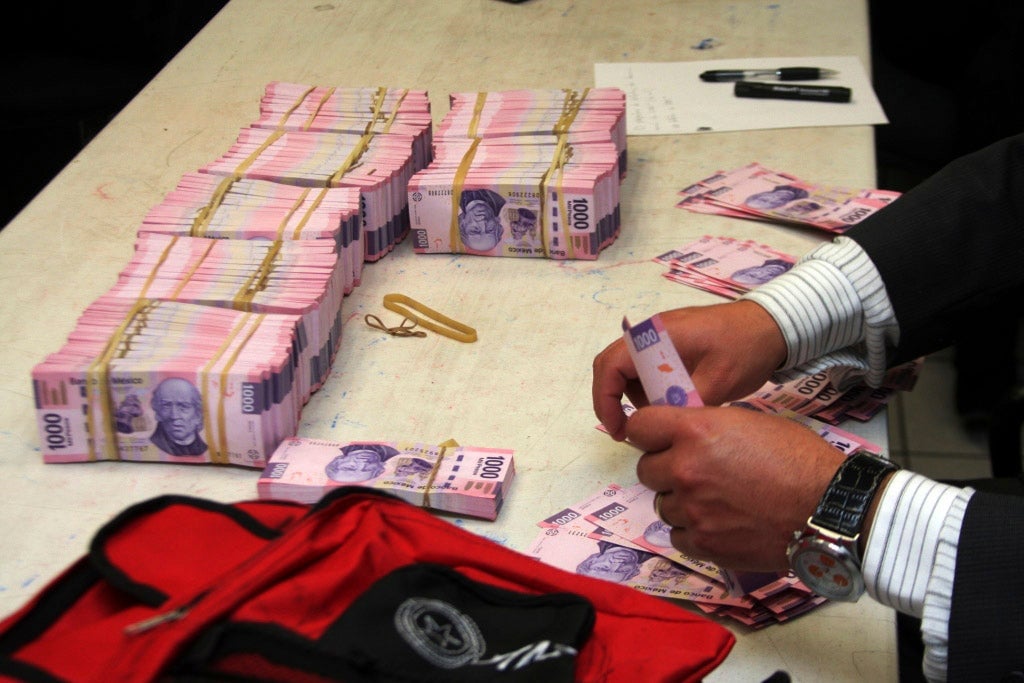Skip the fur coat and generator. How to bribe a foreign government official—legally
The US government has released its guidelines for the Foreign Corrupt Practices Act (FCPA), a law that forbids companies that do business in the United States from bribing government officials anywhere in the world.

The US government has released its guidelines for the Foreign Corrupt Practices Act (FCPA), a law that forbids companies that do business in the United States from bribing government officials anywhere in the world.
The Department of Justice has begun prosecuting more cases under the law. That has left even straitlaced companies that do business abroad—especially in markets where the rule of law hasn’t caught up with the economy—nervous about criminal charges, multi-million-dollar penalties, and the costs of compliance. That slows US foreign investment, and isn’t a bonus for emerging markets, either.
The new guide (pdf) attempts to offer clarity, and is full of good advice, tales of real-life corruption, and pointers on whether it’s really such a good idea to give a suitcase full of money to the Energy Minister’s brother-in-law.
The FCPA dates back to Watergate. In the wake of the ’70s-era political scandal, the “SEC discovered that more than 400 U.S. companies had paid hundreds of millions of dollars in bribes to foreign government officials to secure business overseas…using secret ‘slush funds.'” This was not considered a great development.
Who does it apply to? A lot of businesses: Any American enterprise, or any business that issues securities under US law—which, according to the guide, as of December last year included 965 non-US multinationals—as well as the agents of any entity in the previous two categories. If one company merges with another with the proper due diligence, it may be liable for past FCPA violations.
Why are they bribing foreign officials? To get or keep business, usually. That includes obtaining or retaining contracts to provide goods or services to governments or state-owned businesses, getting around import duties, dodging taxes, and waiving regulations. All in a good day’s work.
Wait, can you even buy someone lunch? You won’t get prosecuted for bribery if you buy someone a cup of coffee. You’ll also get away with providing taxi fare, company promotional items, reasonable wedding gifts, travel for identifiable business purposes, even modest entertainment, like tickets to a baseball game.
Gifts that have gotten people in trouble: Sports cars, fur coats, country club memberships, generators, cell phone bills, limousine services, and trips to tourist traps where you don’t have company facilities, like Hawaii, Las Vegas, the Grand Canyon, Niagara Falls, Disney World, Universal Studios, and New York City.
“The most obvious form of corrupt payment is large amounts of cash.” Here’s an example: “A four-company joint venture used its agent to pay $5 million in bribes to a Nigerian political party. The payments were made to the agent in suitcases of cash (typically in $1 million installments), and, in one instance, the trunk of a car when the cash did not fit into a suitcase.”
How can you tell if your contact is shady? The US Department of Justice recommends raising warning flags if the person is a related to a foreign official, “is merely a shell company incorporated in an offshore jurisdiction,” or demands payment to foreign bank accounts.
You can grease the palms of government agents if it “facilitates” their usual work. Perhaps the trickiest bit of the FCPA says that “facilitating or expediting payments” to secure “routine governmental action” are allowed. The guide at last clears up what this means.
It explains that companies can’t pay officials to break the law or to sway a discretionary choice (like the awarding of a contract), but they can do it to “further” things like ”processing visas, providing police protection or mail service, and supplying utilities like phone service, power, and water.” It elaborates further: “Thus, paying an official a small amount to have the power turned on at a factory might be a facilitating payment.” Or as they call it in other countries, bakhsheesh. Lawyers will no doubt have a field day with this particular piece of guidance.
You can bribe a government agent if your life is in danger. The report quotes the wisdom of the US Congress, “a payment to an official to keep an oil rig from being dynamited should not be held to be made with the requisite corrupt purpose.” Phew! Note that economic coercion, like an official’s refusal to renew a contract unless a bribe is delivered, doesn’t fall under this exception.
You can bribe a government agent if it’s legal to do so in that country. This defense is rarely invoked; even the most corrupt countries don’t like to put it in the legal code.